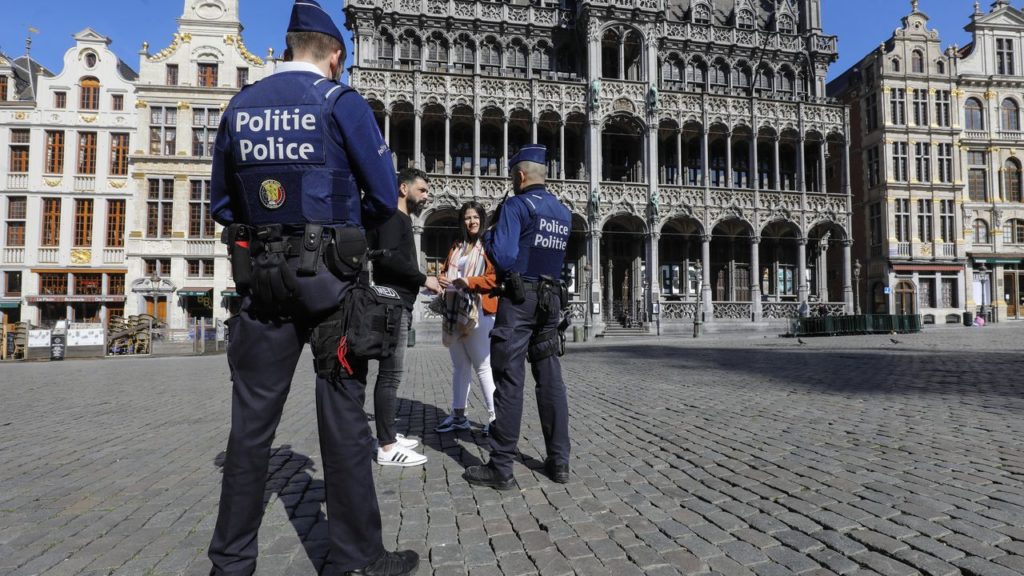Wearing a face mask in all public places in the Brussels-Capital Region will be mandatory if and when the regional average of new coronavirus cases passes the threshold of 50 infections per 100,000 inhabitants in a 7-day period.
The potential face mask obligation emerged as the only new measure taken during a Regional Security Council (RSC) meeting on Thursday, which gathered the 19 Brussels mayor and regional leaders, who held off on imposing stricter rules even as they warned of stricter enforcement.
Brussels Minister-President Rudi Vervoort said that the measure will apply automatically from the moment the average incidence rate in the region passes a new-case alarm threshold set at 50 new weekly cases per 100,000 inhabitants.
"At the moment, across the 19 municipalities, the average incidence rate is of 38 new cases per 100,000 inhabitants," Vervoort said, adding that it was unclear when and if the number would rise.
Related News
- Brussels records fastest hike of new coronavirus infections in Belgium
- Belgian average settles at 533 new coronavirus infections per day
- 'Kafkaesque' system undermines Belgium's contact tracing efforts, local mayor says
"In a territory as densely populated as the Brussels-Capital Region, clear, simple and understandable measures are doubtless more efficient," Vervoort said.
Ahead of the RSC meeting, speculation was high that Brussels would be put under an Antwerp-like late-night curfew, with observers warning that a steady and accelerating rise of new infections in the area could spell trouble for the Belgian capital.
Several health officials and observers have warned this week that the speed at which new infections were being detected in Brussels was accelerating, with only two of the region's 19 municipalities still below Sciensano's new-case alarm threshold (20/100,000 residents) as of Thursday.
Brussels mayors could still move to impose harsher measures depending on the situation in their own municipality, Vervoort said, and warned that police would more strictly enforce adherence to the rules.
"We have now entered into a phase of sanctions in order to ensure that the rules are more strictly followed," he said.
The region would also double down on contact tracing procedures, Vervoort said, with residents who fail to respond to a tracing call now subject to potential penalties.
Cases spiking in younger age groups
Vervoort said that while the resurgence of the virus in Brussels had not yet been tracked down to a particular cluster, a majority of new cases were being detected among younger demographics.
"The majority of cases concerns people aged 20 to 49 years old, with the median sitting at below 30 years old," he said.
"Even if this is a young portion of the population, who we know develops less serious symptoms, they are still carriers and we must prevent that they pass the virus on to older age groups — that is a risk we cannot run."
The resurgence of the virus among younger populations in Belgium coincides with similar scenarios abroad, with the World Health Organisation warning on Wednesday that, as countries lift their lockdowns, the number of cases among people aged 15 to 24 had increased threefold over five months.
Germany, Japan, Spain and France have all detected a rise in cases among young people, with experts saying that emerging clusters within younger age groups could fuel a second wave of the pandemic.
Gabriela Galindo
The Brussels Times

